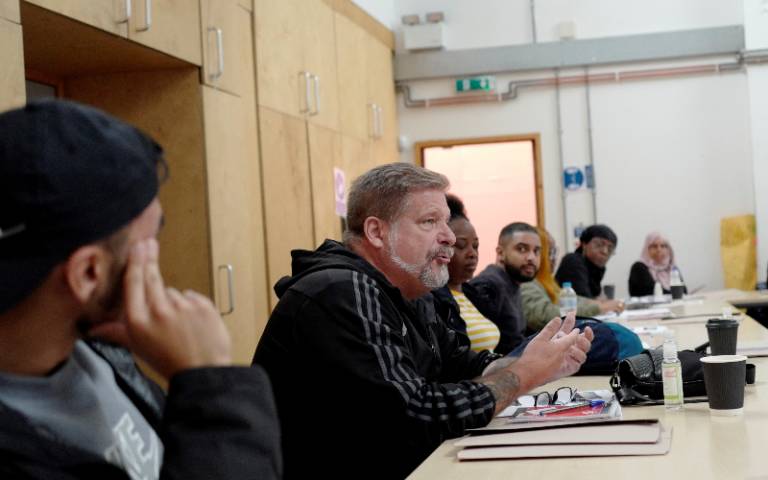How Does Citizen Science Change Us?
26 April 2022
Read about a recent session dedicated to understanding how Citizen Science impacts individual citizens, academics and policy makers, as well as wider society.

On 6 April, the Institute for Global Prosperity (IGP) hosted a session at UCL’s Open Science conference. The session asked, ‘How Does Citizen Science Change Us?’, and was dedicated to understanding how Citizen Science (CS) impacts individual citizens, academics and policy makers, as well as wider society. The event also marked the launch of the IGP’s Citizen Science Academy in partnership with the UCL Office for Open Science and Scholarship. The Academy delivers training to citizen researchers in qualitative data collection methods, and provides a theoretical grounding and practical support to citizens researching local pathways to prosperity in their neighbourhoods.
The IGP embeds citizen-led research in all of the work it does, and invited speakers who have been members of its research teams to share their experiences. It also invited speakers from other institutions in an open call, to broaden the conversation about CS impacts to other projects and different contexts.
The session was divided into three parts. Dr Rita Campos framed the event in a thought-proviiking statement about the potential of CS to empower people to create citizen-focused changed in local and national settings. Citizen scientists, academics, and researchers then discussed their research projects, and the societal and individual impacts CS methods generated. The presenters demonstrated that CS allows the examination of issues that really matter, and builds a stronger connection between members of communities. Some discussed the personal impacts CS had on them, with one former CS at IGP sharing how her journey from citizen scientist to local council candidate was facilitated by the training she received.
The final part of the session focused on how citizen science impacts policymakers and policy making processes. Dominic Murphy (Principal Participation Officer from the London Borough of Camden), and Pye Nyunt (Formerly the Head of Insight & Innovation at the London Borough of Barking & Dagenham) shared their experiences working on CS projects, and discussed how CS has informed council solutions to local issues.
The conversation was opened up to members of the audience – other citizen scientists and researchers –, who asked vital questions about the new directions for CS. Methods for assuring that CS is inclusive, whether CS training should be standardised, and the benefits and potential drawbacks of CS were topics of discussion which the IGP will reflect on in its next projects.
Open science is about opening access of research to wider audiences. One of the benefits being the ability to bridge the gap between local people and policymakers. ‘How does Citizen Science Change us?’ was an amazing example of this.
 Close
Close

